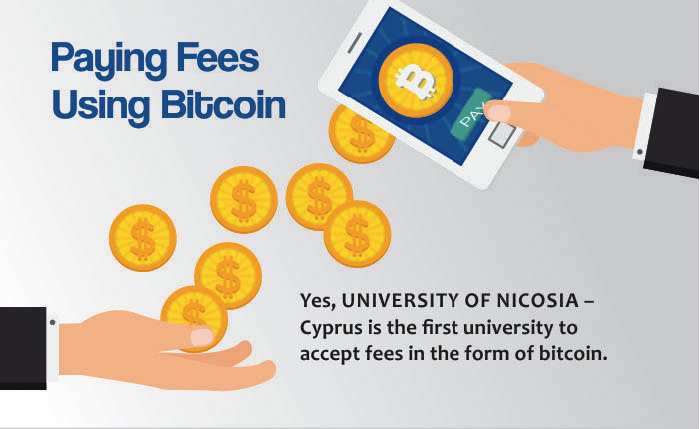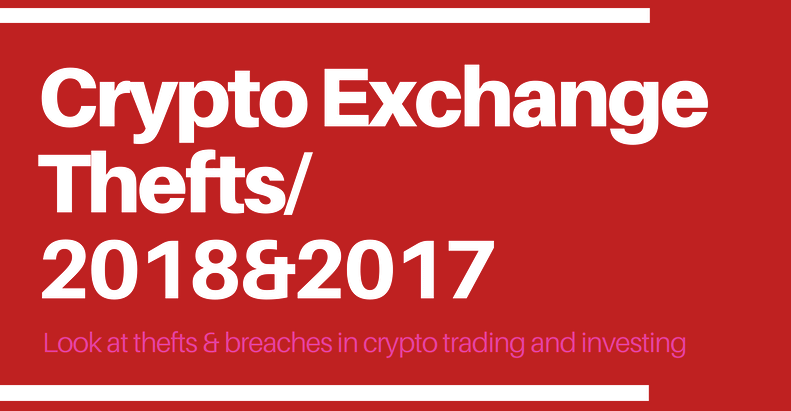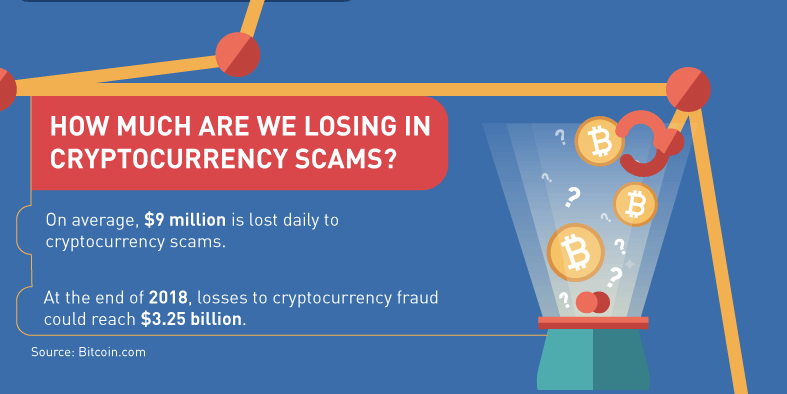The most common view as presented in media seems to be that geopolitical conflicts hurt international trade.
As it often would be with popular opinions, it is not entirely true: International trade is not exactly damaged, it’s just that some of the long-standing trade finance routes are forced to reorganize.
The shifting of trade flows introduces new opportunities into the ossified trade finance service industry. Indeed, some businesses have already been profiting very well from it.
Adopted from citibank.com [1]:
“Take one high-profile example: soybeans.
China is the world’s top soybean consumer and for many years has relied on US to meet its demand.
After Trump imposed tariffs on $250 billion of Chinese imports, China has drastically cut back its US soybean consumption and is instead buying from Argentina and Brazil.
But the overall demand and soybean capacity hasn’t changed much, and so Argentina and Brazil are in turn buying soybeans from the US to fill their own domestic supply, much of which has been diverted to China.”
Trade Wars as Opportunity for TradeTech
International disputes simply created new trade routes that now require adequate financing and administration.
There is no doubt that Citi’s global presence is an advantage here, but another aspect of this type of disruption is that it introduces the space for competition and innovation in trade tech services.
East vs West Once Again
In this regard, the world of global trade seems to be divided:
In the the West, the dominating corporations create consortia and integrate tradetech startups usually via some form of marketplace [2].
In simple terms, the goal is to outsource the innovation on the startup and eventually adapt the minimal change necessary to stay relevant while still fulfilling the corporate wishes of permissioned accesses and organizational responsibility that can be enforced in court.
In Asia on the other hand, startups seem to get more attention on their own. At least publicly, startups and larger organizations are not forming much more than loose partnerships among each other, most often with a direct purpose such as funding, test of application or similar.
November 2019: Two High-Stakes Pilots
Based on where you’re located, you might not have been seeing news from both sides of the world.
What you might have been seeing is corporations like Walmart deploying their own tiny private blockchains on not more than a handful of nodes, essentially using blockchain as a distributed database.
But in fact, November 2019 marked the launch of two pilots that could be ground-breaking for the tradetech industry: One blockchain-administered trade transation in the West on behalf of the r3 network in Saudi Arabia and one in the East by Perlin in Singapore.
The r3 pilot on Corda blockchain was a Saudi British Bank’s letter of credit to finance the shipment of a batch of aluminium between Saudi Arabia and Bahrain.
The Perlin pilot was a full document transit support on the Wavelet blockchain for the shipment of iron ore between South Africa and China facilitated by Singapore government entites, the DBS bank, the International Chamber of Commerce and the Swiss commodities trader Trafigura.
Let’s take a quick look at what each of these players have to offer.
TradeTech: Where Is The Actual Tech?
Corda is a tiered blockchain with open source core but opt-in privacy. It aims to serve large businesses that want real-time data transfer but want to keep the transfarred data private. They advertise maximum throughput of 600 tps with a mix of consesus mechanisms supported.
The transaction capacity is the first difference that stands out here, as Perlin promises up to staggering 31k tps - a claim that is supported by benchmark tests.
Naturally one would be tempted to recycle the well-loved argument that a transaction throughput this high is at this stage not needed.
This argument may work for Bitcoin if you want to consider it a means of payment exclusively used for larger financial transactions.
However in this case, the transaction limit reveals facts about the technology base of these two tradetech platforms that in production could easily become business critical.
The Winner Should Have It All
In the technical whitepaper, Perlin’s developers identified the common barrier to scalability in distributed ledgers as the search for the longest chain.
This barrier was first dealth with in cryptocurrencies such as IOTA that are based on distributed acyclic graph, or DAG. However, a basic version of DAG ledger cannot fully guarantee irreversibility of transactions on the technical level, there typically needs to be some form of external oversight for validation.
Then we got the delegated style of solution, such as the DPoS as proposed in EOS. This approach deals with the chain search bottleneck by decreasing the number of nodes that participate in the search and validation.
The smaller amount of validator nodes, the less network communication needed to confirm a transaction, hence the scalability improvement.
The problem with this approach is that the scalability comes at the price of resilience: The reliance on a group of nodes small enough to be taken out of work by a DDoS or similar attack makes the whole network fragile. Increasing the number of validator nodes improves the network resilience but of course increases the communication requirement and cancels out the scalability improvement.
The Corda blockchain also adopts this style of scaling solution. The validating groups of nodes are called “notary pools”. They can be public but also private and completely opaque.
Citing from the documentation [3]:
“Some notary pools will provide transparency in a way analogous to public blockchains today.
Others may remotely attest that they are running a particular algorithm in a secure enclave.
It is the responsibility of the Corda network governing body is to establish and maintain a list of notary pools which are considered to be operated to sufficient standards of integrity.”
The novel approach proposed in Perlin’s whitepaper is to do away with limiting the number of validators, just like you would have it in a DAG, and to make the method of the search for longest chain itself more efficient: Perlin lets any node to participate in chain search by staking virtual currency and uses a statistical method called “Snowball sampling” which makes the chain lookup more organized and therefore faster.
To work around the common PoS pitfalls where it can pay off to validate newly emerged chains or to fake chain length by transacting back and forth, the reward is lost when validator votes for a chain that is not only too short but also has diversity below a certain threshold.
The practical implications are that transactions confirmed by the network are final and cannot be reversed. This in turn allows for pruning of old transactions and reduces the size of the ledger. Consequently, Perlin full node can run on any device with 512 MB of free RAM, which will be most common smartphones. Very good for building a network that is resilient mainly because it’s distributed rather than mainly because it’s maintained by a commercial solution provider bound by legal agreements.
Using Blockchain Tech Meaningfully
In the context of international trade, the key innovation of blockchain technology is that transfer of data on a distributed ledger is finalized when the transaction is confirmed by the network.
If you are transfering money for instance, such as you would on Bitcoin, it means your money order is settled and cleared once you get the network confirmation, without any need for clearing houses or any other financial organizations to check and approve the transaction - that is why you can transfer Bitcoin on bank holidays.
This concept applies just the same to transfer of data or anything else on blockchain, as long as the technology is used in a meaningful way.
If a blockchain platform cannot guarantee the finality of transaction based on network confirmations, its whole business concept should be seen as questionable.
Summary
Both Perlin and r3 pilots are underway this month.
What will become of each of them is yet to be seen, and of course a good business fit always amounts to much more than just better tech.
But one thing is clear - if you’re looking for tradetech innovation that is using blockchain meaningfully plus doesn’t aim to collect funding and stay vaporware, you need to start looking at Asia.
Referenced documents (timestamping via freetsa.org)
[1] Citibank on profiting from trade wars
[2] r3 marketplace - Members who are financial institiutions (Timestamped)
[3] r3 Corda Documentation - Notaries (Timestamped)
More & Better:
Email alerts (2-3 a week)
- Opinions, Analyses & Interviews
- Industry News Releases
- Blockchain Tech Intelligence
Data is beautiful
Blockchain Technology in Mobile App Market: State of the Industry 2020
Blockchain is currently at the top among the new trending technologies that came up in recent years. It is a remarkable innovation for our ever more digitalised world. Blockchain is mostly known as decentralized network,...
New Horizons in Fintech: Payments, Big Data and Partnerships [Infographic]
The global fintech market saw a period of consolidation in 2018, which is exactly what we saw also in terms of price evaluation of crypto assets. In spite of the “crypto winter”, which is apparently...
Brand development in forex and crypto: Most expensive domain names [Infographic]
Crypto infographics - Most expensive domain names in forex and crypto. Targeted brand development in forex and crypto with domain names.
Top 8 Women in Blockchain Tech [Infographic]
When it comes to women in crypto, the pre-2016 OG heads will probably come up with names like Alena Vranova and Blythe Masters. Alena Vranova is the former CEO of Satoshi Labs, the company that...
Infographic: Blockchain Technology, Ledgers, Blocks and the Role of Price
Blockchain technology 101: What is blockchain, what types of blockchains exist and what role does the cryptocurrency price play.
Infographic: The Good And The Bad Of ICOs
Infographic: The good and bad of ICOs - Which token sales raised the most money in 2018?
The Business of Esports: All The Numbers [Infographic]
Esports is a rapidly emerging category as a real sport. It’s even beginning to compete with traditional sports.
Shocking Facts About Cryptocurrency Heists [Infographic]
If there is one question in the history of Bitcoin that cannot be answered with anything more than an estimate, it is the problem of how much of Bitcoin’s supply is actually ever available on...
Comparing Forex Market with Crypto Markets [Infographic]
One of the few metrics that cryptocurrency markets have in common with the forex markets in 2018 is the high percentage of total trades being located on few most popular markets.
East vs. West: Which One Sides More With Blockchain?
Digital cash schemes were the holy grail of the late 90s, but since the bitcoin blockchain was invented, suddenly nobody in the West cares.
Blockchain Consortium in Trade Finance: 6 Notable Networks [Infographic]
The success of trade finance blockchain implementations depends on how widely they are adopted. That's why we have seen businesses form consortia based on similar interests.
Real-world companies that accept crypto payments [Infographic]
Infographic - Graphic map of businesses that let customers pay in bitcoin.
Infographic: Blockchain Hacks & Crypto Trading Platform heists 2018 vs 2017
Blockchain infographic comparing the biggest crypto heists of 2018 and 2017. In 2017 the focus lied more on ICOs, smart contracts and wallet.
15 crypto kings that are making history with their engagement in the field of cryptocurrencies
Coining The Bucks With Cryptocurrencies Have you ever wondered how much masters of the cryptocurrencies are worth? Like the guy who founded Ethereum, or the one who started Ripple, for example. The answer, in short,...
Industry News Releases
LocalCryptos, the non-custodial p2p platform, added a crypto-to-crypto exchange feature
LocalCryptos, formerly known as LocalEthereum, is currently the most popular non-custodial p2p market for cryptocurrencies....
Read >>- Montenegro to embrace blockchain technology in efforts to join the EU
- The Global Hackaton (April, Los Angeles) comes with free tickets to Crypto Invest Summit
- Etheremon celebrating #ChineseNewYear2019 with a series of bounties (Ends 8:00 AM UTC on Feb 11th)
- Crypto Marble dApp Game: Monopoly on Blockchain
- The dApp gaming platform VX Network launched the official VX Wallet in Apple App Store and Google Play
- Etheremon's first Chinese New Year Campaign: Chance to recall two rare mons
Comments
Also by Diana
In what ways might cryptocurrencies soon get more accepted in the mainstream?
Released on August 10, 2022 04:06:28 PM by Diana Read >>



![New Horizons in Fintech: Payments, Big Data and Partnerships [Infographic]](http://images.ctfassets.net/xwo28v1qbyr0/68XlkJIBuzcl5dyeDgIJ9m/bb7ee7ff0f255d3841186d638be798a1/android-android-phone-apps-47261.jpg)
![Brand development in forex and crypto: Most expensive domain names [Infographic]](http://images.ctfassets.net/xwo28v1qbyr0/5rT40HsDIWEUg0iWc8G2AA/084d085e8f7f31da24940b66ea356328/photo-1516321497487-e288fb19713f.jpeg)
![Top 8 Women in Blockchain Tech [Infographic]](http://images.ctfassets.net/xwo28v1qbyr0/FL3j8Qh2guG0wUacsS8S4/b1043ca8ea66dbff6c3decacf89c8888/women-blockchain.jpeg)


![The Business of Esports: All The Numbers [Infographic]](http://images.ctfassets.net/xwo28v1qbyr0/2ccUoChrlV9yZ4DAVU9zbj/fda01df3d8701b0186d3d4b599948707/esports-rise.png)
![Shocking Facts About Cryptocurrency Heists [Infographic]](http://images.ctfassets.net/xwo28v1qbyr0/7MiXmbuHd0NfWqKKd9hl7f/009c666e06e37af9a5a3ae8c6b6cc41e/martin-reisch-199362-unsplash.jpg)
![Comparing Forex Market with Crypto Markets [Infographic]](http://images.ctfassets.net/xwo28v1qbyr0/1MjGSV93CkQeuyusw4mGWy/31d8dc16c8a41703c1cd94273820431c/forex-vs-crypto.jpeg)

![Blockchain Consortium in Trade Finance: 6 Notable Networks [Infographic]](http://images.ctfassets.net/xwo28v1qbyr0/5LjWNG4sg0G8skosc6yCUu/09ee40b6faa5362e3843a4d4ac9d54b9/pexels-photo-373912.jpeg)
![Real-world companies that accept crypto payments [Infographic]](http://images.ctfassets.net/xwo28v1qbyr0/5uN67wErhSaaiQmok0UAKo/2d18d249a49a4e921f21e0e1703ab9b1/who-accepts-bitcoin__1_.png)


![How Blockchain Disrupts Business [Infographic]](http://images.ctfassets.net/xwo28v1qbyr0/5itC9tgscgEWqCAkUO0Q8S/c44f6a4af9bf880956aa43a6d8b03ef8/16-blockchain-disruptions__1_.png)



